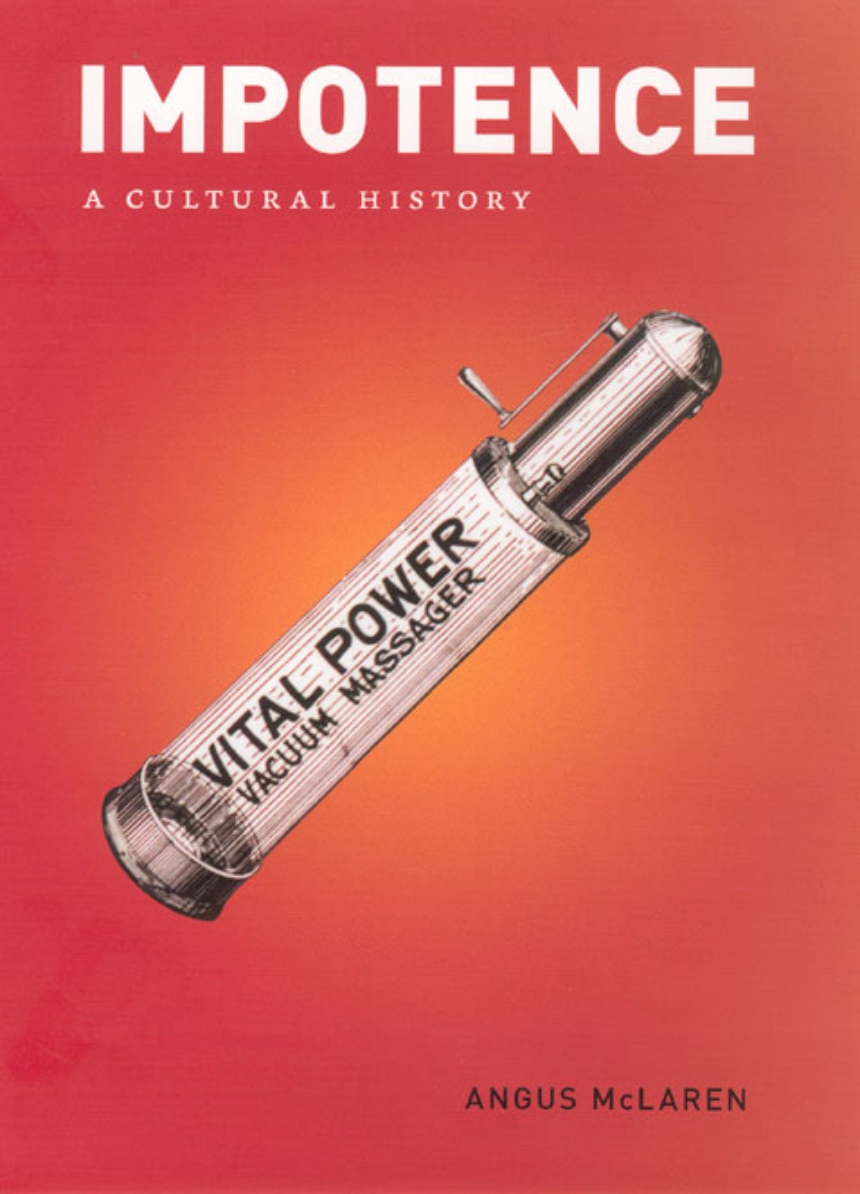Impotence
A Cultural History
As anyone who has watched television in recent years can attest, we live in the age of Viagra. From Bob Dole to Mike Ditka to late-night comedians, our culture has been engaged in one long, frank, and very public talk about impotence—and our newfound pharmaceutical solutions. But as Angus McLaren shows us in Impotence, the first cultural history of the subject, the failure of men to rise to the occasion has been a recurrent topic since the dawn of human culture.
Drawing on a dazzling range of sources from across centuries, McLaren demonstrates how male sexuality was constructed around the idea of potency, from times past when it was essential for the purpose of siring children, to today, when successful sex is viewed as a component of a healthy emotional life. Along the way, Impotence enlightens and fascinates with tales of sexual failure and its remedies—for example, had Ditka lived in ancient Mesopotamia, he might have recited spells while eating roots and plants rather than pills—and explanations, which over the years have included witchcraft, shell-shock, masturbation, feminism, and the Oedipal complex. McLaren also explores the surprising political and social effects of impotence, from the revolutionary unrest fueled by Louis XVI’s failure to consummate his marriage to the boost given the fledgling American republic by George Washington’s failure to found a dynasty. Each age, McLaren shows, turns impotence to its own purposes, using it to help define what is normal and healthy for men, their relationships, and society.
From marraige manuals to metrosexuals, from Renaissance Italy to Hollywood movies, Impotence is a serious but highly entertaining examination of a problem that humanity has simultaneously regarded as life’s greatest tragedy and its greatest joke.
350 pages | 6 halftones, 2 line drawings | 6 x 9 | © 2007
Culture Studies:
History: American History, European History
Reviews
Table of Contents
Acknowledgments
Introduction
1. The Impenetrable Penetrator
2. When "Desire Refuses Service": Impotence in the Christian West
3. The "Infirmity of Others": Laughing at Fumblers in Early Modern Europe
4. "Shameful to Wives, Ridiculous for Husbands, and Unworthy of Tribunals": Impotence in the Age of Reason
5. Neurasthenia, Decadence, and Nineteenth-Century Manhood
6. Marketing Manly Vigor: Victorian Medicine versus Quackery
7. Sigmund Freud, Marie Stopes, and "the Love of Civilized Man"
8. Sex Glands, Rejuvenation, and Eugenics between the Wars
9. The "Impotence Boom": From Kinsey to Masters and Johnson
10. Viagra: Hard Science or Hard Sell?
Conclusion
Notes
Index
